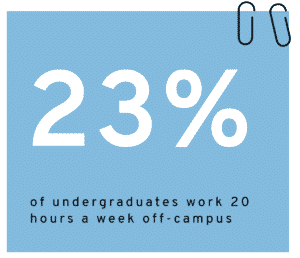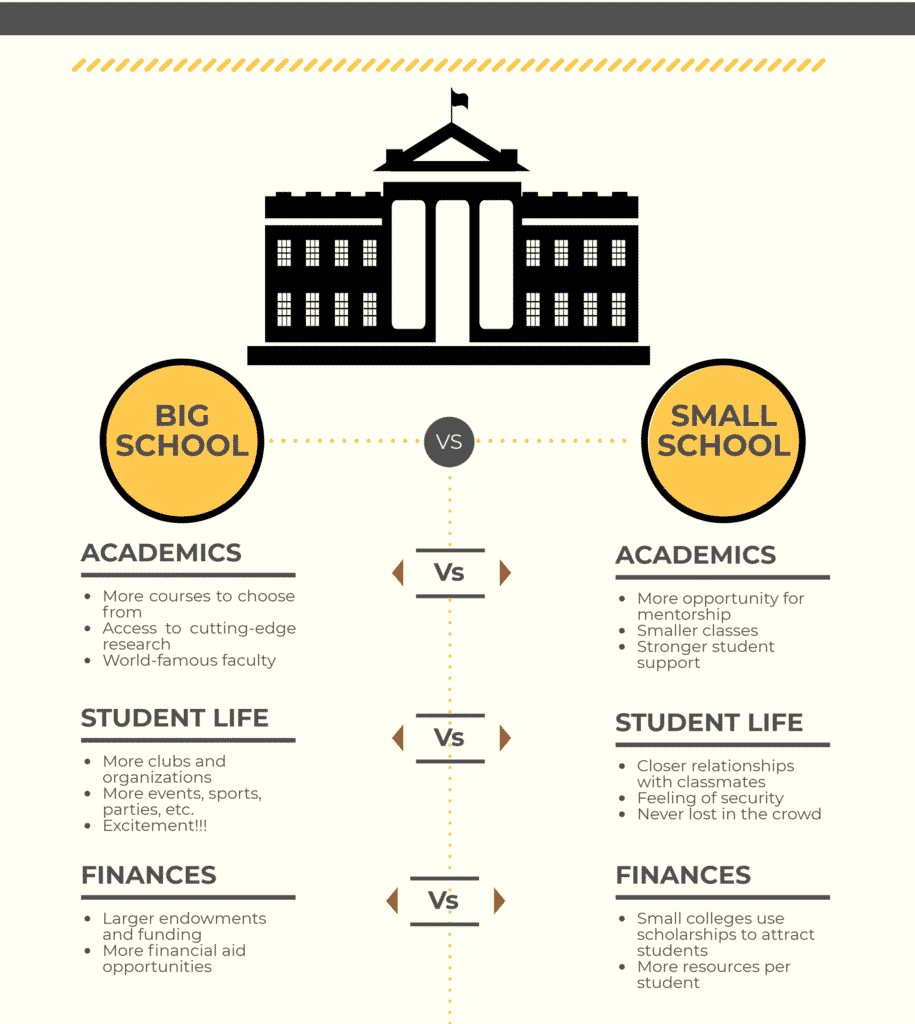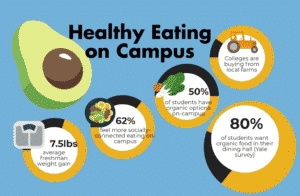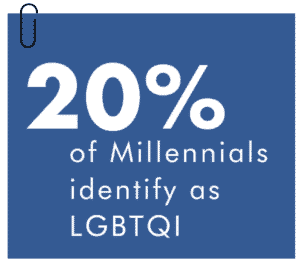What Are Some of the Main Factors in Choosing a College or University?
Choosing a college or university is an incredibly important decision that no one should take lightly. However, when it comes to making the choice, the sheer amount of available options can overwhelm many people. A colleges list can help someone see what is out there, but a colleges list alone is not enough to come to a reasonable decision.
Knowing how to choose a college means considering every aspect of an applicant’s personal situation and goals. Then, the applicant must choose a college with the right features that can work with their situation and goals. A few things to consider when choosing a university include:
- Your own desires
- Your academic interests
- Location
- Size of the school
- How much it will cost
These are some base level considerations. Each one of them can expand into a host of other things to consider as well. While these considerations can make choosing a college seem like an absurdly complex process, applicants can narrow down their search in various ways.
For example, a goal or desire can consist of wanting the best education in a particular field. Academic interests can mean someone wants to choose a college that has a history or good track record producing graduates in a particular discipline.

The location will dictate if someone will need to leave home, stay home, or go abroad in pursuit of his or her academic goals. The size of the school and the size of the classes can play a huge role in someone’s ability to learn comfortably or receive more direct attention and help from instructors. Then, there is the giant consideration of finances.
Beyond these considerations comes even more, such as the sports or music programs available, and the on-campus activities offered. For those wondering how to choose a college, there is no all-encompassing answer. Each individual will have a personal journey when evaluating factors in choosing a college.
There are many reasons students choose a college. The top factors in choosing a college are not always the same for everybody. When trying to compile a list of things to consider when choosing a university, applicants should create a “choosing a college checklist.” They can identify what they want and need, and write those things down as criteria for choosing a university.
The “choosing a college checklist” can help narrow down the choices as the applicant figures out how to choose a college or university that is the right fit. Still, many of the factors involved with choosing a college or university also have to deal with:
- The reputation of the school
- The academic record of the school
- The accreditation status of the school
Various other things will factor into the decision. With so many things to consider, an applicant can feel overwhelmed. The best thing to do is to really take the time to write it all down and narrow it down to the core things the applicant feels are most important to them.
How Important is College Location?
People should never underestimate the importance of school location. While some may want the coolest college campuses or the most fun college towns, it is a far better idea to consider the overall geographic location of these campuses and towns.
Location is not just about where the school sits, but also has to do with how the area feels. A campus in a sprawling urban area is not the same as a campus in a rural area. In addition, the location has a dramatic effect on the costs associated with attending that particular college.
One of the prime considerations for location has to do with whether an applicant will want to live at home, live on campus, or live off campus. Staying home means a commute to and from the campus. If that commute means crossing a state line each day, some extra traveling expenses can come into play.

Living on campus means paying for a dorm room and adjusting to dorm life. The location of the school will come heavily into play in regards to campus life and activities. Off-campus living comes with many of the same concerns as living at home. The proximity to campus will matter a lot.
These considerations create other considerations tied to them. However, location comes with even more important things to consider.
Location Rankings:
25 Best Colleges for Skiing & Snowboarding
30 Most Beautiful College Campuses in the Fall
Top 10 Most Haunted Colleges in America
25 Best Mountain Colleges
25 Best River and Lake Colleges
25 Best Beach Colleges
Location and Travel
Travel goes hand in hand with the location. Students may have to travel a long distance to reach the school, or to get back home for holidays and vacations. Even if the campus sits relatively close to home, students will have to consider how much it costs to get back and forth from the campus to their homes.
Will the student need to commute or own a car? Is public transportation a good option in that particular location? The costs of travel will add up, so applicants must consider them when they are thinking about location.

Location and Cost of Living
Every locale has its own economic system. The cost of the school may sit well within an applicant’s budget, but the cost of living in that particular location may create a real hardship for the applicant. Even if living on campus, the price of everything will depend on the cost of living in the overall area.
Location and Cost of Colleges
Many colleges charge out of state students far more in tuition than they charge in-state students. The difference in price can come out to more than double the in-state cost. Those price discrepancies are not across the board, so applicants do not have to autom
atically assume they will pay more for out of state learning. However, applicants should always check on the out of state costs to make sure.
Location and Weather
For those accustomed to a certain type of weather, going elsewhere can give them quite a shock. People from warmer climates may find themselves miserable in a colder climate. This is not true for everyone, but for some sensitive applicants, the weather can make a huge difference.
The comfort level of a student has a lot to do with how they perform academically. In addition, different weather can mean learning how to do normal things all over again. For example, driving in a rainy environment or on snowy roads is completely different from driving in drier climes.
Location and Opportunities
Some campuses have proximity to an industry or other places where a student can go to receive internships, hands-on training, and career contacts. Choosing a college based on location should also come with these considerations as well.
If someone wants to take up engineering, then a college located where a lot of engineer opportunities and organizations exist can make for a great choice. Some colleges have deals with local businesses that can help students with internships, references, and other advantages.
Many other factors can come into play regarding the importance of school location. So, applicants seeking the coolest college campuses need to also remember to add what they want from the location to their checklists.

How Important are Amenities in Choosing a College?
The amenities offered by college campuses vary wildly. Generally, the amenities of a college can include things like student centers, recreation centers, dining halls, exercise facilities, and access to things like swimming pools.
When choosing a college, it is important to consider the amenities, but it is just as important to recognize perks that may cause a distraction. Often, the lavish amenities of some colleges are reflected in the tuition costs. Potential students should try to avoid paying for things they do not need in this way.
Amenities Rankings:
25 Most Beautiful College Theaters
25 Best College Dining Halls
Best College Waterparks
50 Best Campus Recreation Centers
35 Best College Dorms
25 Colleges That Offer Free Laptops or iPads
Cool dorm rooms and a campus recreation center can add value to the overall education a student receives. However, for some students, too many amenities, especially those the lavish variety, can become a distraction from studies and learning. Applicants should look for good amenities that they can see value in.
A college with cool dorm rooms that provide a little space and comfort can help someone get through academic trials. A campus recreation center is ideal for socializing, becoming part of the community, and brainstorming with others. On the other hand, if the dorm rooms are more like high-end hotel rooms, then a student may have too many comforts and distractions. If the campus recreation center comes with an overabundance of amusements, a student may find himself or herself spending far too much time there.

The best college dining halls can offer good meals, but the best college dining halls are not always good criteria for choosing a college. For example, if the campus is in the heart of a downtown area or larger town with plenty of food options, then the value associated with an incredible dining hall goes down.
Once again, location factors into some of these considerations as well. Many colleges make use of the surrounding town and areas to offer amenities.
This is especially true of beach colleges and colleges located in areas with a lot of terrain or industries around them. For example, many beach colleges offer some of the best spring break destinations for college students on a budget because they are located close to places where students may want to go.
When it comes to amenities, applicants should also pay attention to which ones they can make the most use of, and which they can do without. An applicant with no interest in playing sports, watching sports, or participating in sports does not need to consider a college’s sports facilities.
By contrast, another person may find himself or herself won over by a university with an excellent football or soccer field. Some amenities can seem like excessive luxuries to some, but necessities to others. Swimming pools and workout rooms are a necessity for some students, especially if they are active or on sports teams.
To some others, these things might never see a single visit. The amenities to truly watch for are those that may seem like too much of a good thing.
Some dorms come with Jacuzzis, sundecks, lobby bars, and various things that can seem awesome but may not represent necessities. If the tuition cost seems too high and the college has many of the more luxury items, then that is likely the reason for the cost.
For an applicant who does the research and can afford the tuition, then these more luxurious amenities can become a selling point that makes them go for the college. There is nothing inherently wrong with the more expensive amenities. Applicants just need to make sure the amenities are not the only reason they are considering a college.
How Important is Community in Choosing a College?
A college comes with a community. That community will have a feel and a flow that is important to campus life and can severely affect a student’s college career.
The happiest colleges will produce graduates while the colleges that leave students overly stressed will likely have many students who leave, fall behind, or drop out of academic life altogether. When choosing a college, applicants should do research to ascertain how real students feel about the campus, the surroundings, and their experiences living there.
Community Rankings:
Best Spring Break Destinations for College Students on a Budget
25 LGBTQ Friendly Colleges
50 Underrated Colleges Doing Great Things
25 Best Green Colleges in the United States
Top 35 Tuition-Free Colleges
15 Most Unusual College Degrees (You’ve Probably Never Heard of)
The happiest colleges are not always so happy for everyone. Applicants need to gauge if that particular school is a good overall fit, and the best way to do that is to take a look at the community a particular college fosters.
A good college is one that takes an active role in building a sense of community at the facilities. People often look for fun colleges, but some fun colleges are not always the best fit for everybody.
Fun is a subjective term, and while some may have a blast on a particular campus, it does not mean the campus community is fully inclusive or caters to everyone’s needs. For example, an applicant may want to consider more tolerant LGBT colleges. A person of faith may want to consider colleges that have a strong faith-based community.

Even for applicants that treasure diversity, it is still important to ascertain if the college really does represent diverse communities with some research. Even LGBT colleges still need thorough vetting by those who are considering a university with that particular type of community.
A strong college community comes with many benefits. Community creates an inclusive sense of belonging. Applicants can become part of a larger family, and feel welcomed into it. That sense of comfort that comes with belonging can make life a lot easier on campus.
Community fosters safety in more ways than one. A strong community means people can feel safe. This applies to physical safety, as everyone can look out for each other. This also applies to other types of safety, like feeling safe with being oneself or expressing one’s thoughts.
Strong community on campus typically means a strong community off campus as well. Many colleges are part of the communities where they are located, and often student activities will lead to interaction with the local groups, people, and businesses. A college that fosters both internal and external community relations is certainly one worth considering.
Famous Alumni:
10 Best Educated NBA Players
10 Smartest NFL Players
10 Best Educated Women in Rock
10 Rock Stars With College Degrees
10 Best Educated Sci-Fi and Fantasy Authors
10 Highest Educated Country Music Stars
Top 10 Bands that Met in College
10 Rappers With College Degrees
Top 10 Best Educated Hollywood Stars
Top 10 Highest Educated Comedians
How Important is Ideology in Choosing a College?
Most people have strong beliefs or passions regarding any of a number of things. Some may find they want to attend a school that represents, fosters, or embraces a particular ideology.
Choosing a school strictly based on ideological reasons is not always the right way to go about the process. Nevertheless, including ideology as one part of the larger selection process can help applicants decide which school is the right one for them.
Some examples of ideological considerations include environmental responsibility, faith, and political leanings. Someone with environmental concerns may want to go to an environmentally responsible university. In such a case, they can do searches for the greenest universities and look for those that have sustainable practices and take active measures to make environmentally conscious decisions.
Christian applicants may want a Christian college. The best Christian colleges are those that deliver an excellent educational experience while remaining cognizant of the role the faith plays in everything they do. Choosing from the best Christian colleges also means finding the colleges that also represent the applicant’s particular denomination as well.
Many colleges and universities have communities with ideological leanings but do not put a lot of emphasis on them. The greenest universities may have sustainable practices, but not all of them will have that particular ideology front and center in all they do.
Equally, a school known for their socially conscious efforts may still work just as well for a student who does not share that particular ideology. If an applicant has a particularly strong belief, then they can look into which schools will offer them the most value while also fostering those beliefs.
As an example, a Christian college can still offer an excellent education to a non-Christian student. Ideology does not always permeate the entire atmosphere of a college. When looking for a college, an applicant should do some research to see just how strong an ideological presence is on a particular campus and go from there.
